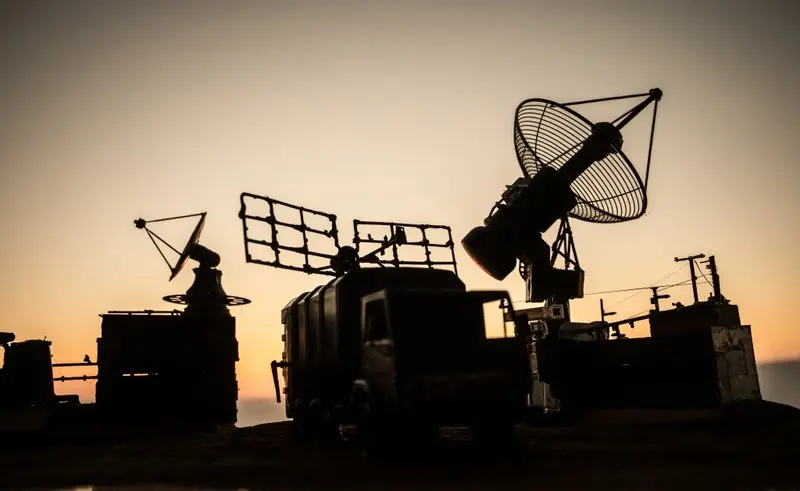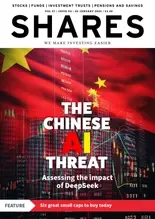
The dramatic tightening of sanctions against Russia for its invasion of Ukraine hurt stock prices on Monday and sent oil prices back above $100 a barrel, but the shares of arms makers were rising after Germany said it will step up its military spending.
The US and EU said they would exclude some Russian banks from the international bank payments system Swift and personally targeted Russian President Vladimir Putin and Foreign Minister Sergei Lavrov with sanctions.
In response, Russia said it could ride out Western sanctions over its invasion of neighbouring Ukraine as Putin huddled with officials to discuss the economic turmoil of the five-day-old war.
‘The Western sanctions on Russia are hard, but our country has the necessary potential to compensate the damage,’ Kremlin spokesman Dmitry Peskov told journalists.
The FTSE 100 index was down 85.87 points, or 1.1%, at 7,403.59. The mid-cap FTSE 250 index was down 104.20 points, or 0.5%, at 20,802.55. The AIM All-Share index was down 0.20 of a point at 1,030.10.
The Cboe UK 100 index was down 1.1% at 736.54. The Cboe 250 was down 0.5% at 18,516.78, and the Cboe Small Companies down 0.5% at 14,798.50.
In mainland Europe, the CAC 40 in Paris was down 3.0%, while the DAX 40 in Frankfurt was down 2.4%.
Ukraine demanded an immediate Russian ceasefire and troop withdrawal on Monday as its delegation arrived in Belarus for talks with Russian negotiators on the fifth day of the Kremlin's offensive.
Ukraine forces, backed by Western arms, are continuing to resist the Russian attack, a day after Putin ordered the country's nuclear forces onto high alert.
Ukraine's delegation is set to meet Russian representatives for the first talks since Moscow's invasion on Thursday last week.
The meeting will take place just across the border in neighbouring Belarus, a key Kremlin ally that has allowed Russian troops passage to attack Ukraine.
‘Disturbing footage of Russia's invasion of Ukraine over the weekend and the former's decision to put its nuclear forces on high alert has served to spook investors once again, with equity markets falling across Europe,’ said AJ Bell's Russ Mould. ‘Many investors are showing solidarity with the Ukraine and no longer believe it is morally right to have anything do with Russia in their portfolio.’
In the FTSE 100, BAE Systems was the best performer, up 14%, after Germany on Sunday announced a ‘historic’ shift in its foreign and defence policy.
Hours after Germany dramatically reversed its ban on lethal weapons exports to conflict zones by announcing huge shipments to Ukraine, Chancellor Olaf Scholz said €100 billion will be earmarked for investments for the army in 2022 alone.
Jefferies analyst Chloe Lemarie said defence is now ‘top of mind’ for all European investors following Germany's significant step up in its armed forces budget.
‘With the open war situation in Ukraine, and NATO forces being deployed to neighbouring countries, defense consumables (ammunition, countermeasures etc) should be the first products to experience restocking & order uplift...We see BAE's Northern Europe exposure to land defence as a key asset,’ Lemarie said.
Defence names also were among the best performers in the FTSE 250, with Chemring up 13%, Qinetiq up 12%, and Babcock International up 7.0%.
Bunzl shares rose 5.8% after the distribution firm said it continued to perform strongly during the virus pandemic and was confident in its 2022 prospects.
For 2021, Bunzl posted a pretax profit of £568.7 million, up 2.3% from £555.7 million in 2020, on revenue of £10.29 billion, up 1.7% from £10.11 billion. Bunzl declared a 57.0 pence annual dividend, up 5.4% from 54.1p paid out in 2020.
Looking ahead, Bunzl expects moderate revenue growth in 2022, driven by acquisitions completed in the past 12 months and supported by a slight increase in organic revenue.
At the other end of the large-caps, Russia-focused metals and mining stocks Evraz and Polymetal International were by far the worst performers, down 25% and 50% respectively.
In the FTSE 250, Russian gold miner Petropavlovsk was the biggest faller, down 25%. Eastern Europe-focused airline Wizz Air was 8.0% lower.
Ferrexpo was up 7.8%. The iron ore pellet producer in the Ukraine has decided to delay the publication of its full-year results, originally set for March 16. The company said the situation in Ukraine remains ‘complex and changeable’ and is aware of reports of the Ukrainian railway network providing limited capacity to its freight customers. The stock remains down 45% over the past two weeks.
BP was down 6.5%. The oil major said its decision to exit its stake in Russia's Rosneft will not harm its ability to increase payouts.
On Sunday, BP said it will sell its near 20% stake in Russian oil producer Rosneft, which it co-owns with the Kremlin, after facing pressure from the UK government.
BP said the exit from Rosneft shareholding does not change its distribution guidance and its financial frame guidance remains unchanged. The oil major said it still expects to have capacity for 4% annual increases in dividend through 2025. It also still expects to deliver a 7% to 9% compound annual growth rate in earnings before depreciation and amortisation to 2025.
Still, BP said it will report a material non-cash charge in its first-quarter results in May, due to the required changed accounting treatment of the Rosneft stake.
Associated British Foods was down 3.4%. The Primark clothing chain owner forecast higher first-half sales and adjusted operating profit against a backdrop of supply-chain disruption.
For the six months ending March 5, AB Foods expects sales and adjusted operating profit to be strongly ahead of a year before. It also expects sales and adjusted operating profit to be ahead of the pre-Covid levels achieved in the half year to February 29, 2020.
At its Primark fast fashion stores, sales for the first half are expected to be over 60% ahead of last year at constant currency with an operating profit margin of around 11%.
In addition, AB Foods highlighted that its other businesses have faced supply-chain disruption, and it has raised prices in some divisions, including grocery, to offset higher energy and commodities costs.
Elsewhere on the London market, McColl's Retail plunged 57% after the convenience store chain confirmed a Sky News report that it was working with advisers to find a buyer or investors willing to inject fresh capital to avoid administration.
The pound was quoted at $1.3400 at midday on Monday, down slightly from $1.3409 at the London equities close Friday.
The euro was priced at $1.1207, down most significantly from $1.1258. Against the safe-haven yen, the dollar was trading at JP¥115.52 in London, lower against JP¥115.61.
Brent oil was quoted at $102.71 a barrel Monday at midday, up sharply from $97.16 at the London equities close Friday.
Oil prices jumped back above the $100 mark after the latest round of sanctions against Russia, said Warren Patterson and Wenyu Yao, commodities strategists at ING.
‘Whilst the US has said that there will be exceptions made for Russian energy exports, the market is clearly nervous given that sanctions are becoming increasingly restrictive,’ Patterson and Yao said. ‘The growing risk of sanctions has reduced the appetite of many in the industry to commit to Russian oil.’
Saudi Arabia on Sunday confirmed its commitment to the OPEC+ agreement with Russia, the Saudi Press Agency reported. Members of the OPEC+ oil producers' group, which includes Russia, will meet on Wednesday to discuss loosening the taps.
Gold stood at $1,908.75 an ounce at midday in London on Monday, firm from $1,887.00 late Friday.
New York was pointed to a mixed start, as the White House said US President Joe Biden will hold a secure call with allies and partners on Monday to discuss ‘developments’ in Russia's attack on Ukraine.
The Dow Jones Industrial Average was called down 1.2%, but the S&P 500 up 0.5% and the Nasdaq Composite up 0.2%, based on futures trading. The indices closed up 2.5%, 2.2% and 1.6% respectively on Friday.
At the weekend, Berkshire Hathaway reported an 11% rise in fourth-quarter earnings, topping off a year that saw profit more than double, though Chair Warren Buffett said there is ‘little that excites us’ in the current investment climate.
Net earnings attributable to shareholders was $39.65 billion in the last three months of 2021, up from $35.84 billion in the fourth quarter of 2020. This consisted mostly of net gains on investments and derivatives, which increased by 5.0% to $32.36 billion from $30.83 billion. Operating earnings added $7.29 billion, jumping 45% from $5.02 billion.
Copyright 2022 Alliance News Limited. All Rights Reserved.




